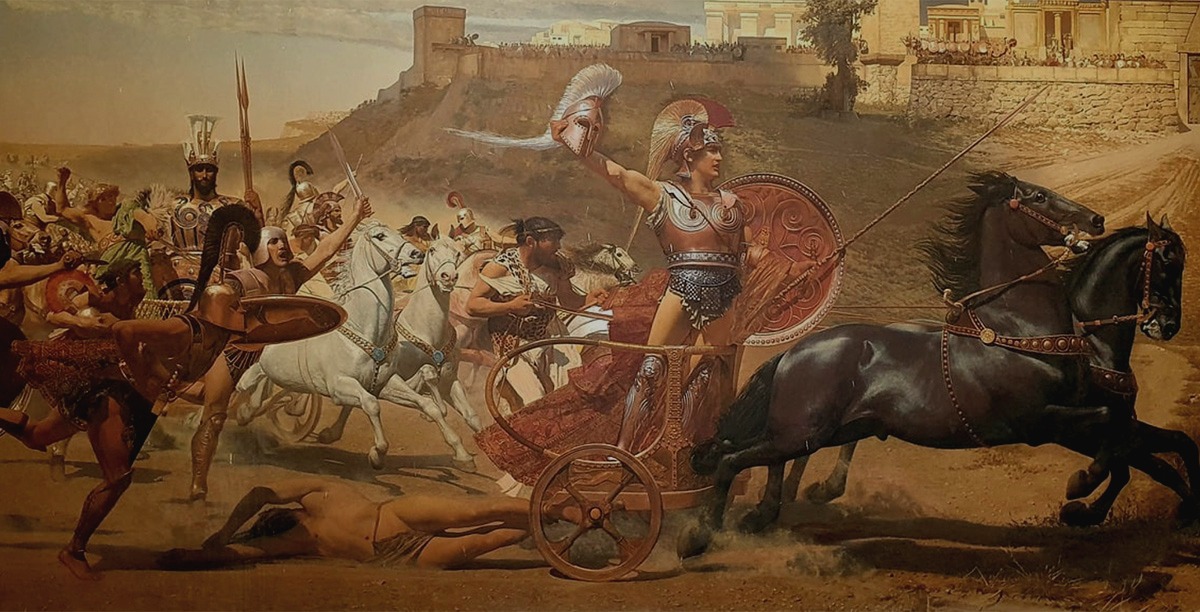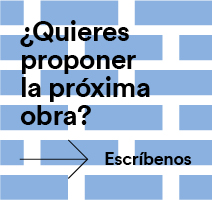"No one can hurry me to Hades before my time, but if a man's hour comes, whether he be brave or a coward, he will have no escape."
As result of the fascinating works of Homer, Francisco Portillo López, student of 1st year of Degree in language and Spanish Literature + Diploma in Creative Writing, shares with us a commentary on the Iliad. The mother of all human works.
Before we begin to delve into the Iliad, it is necessary to put the author in context. Homer is a historical character with characteristic features: an old bard who lived in the 8th century B.C. in Ionia. He is supposedly the author of one of the greatest literary works in history, the Iliad.
However, in the poem there are explicit linguistic and historical elements that seem more modern, a matter that has cast doubt on whether Homer was really the one who wrote the story. Since then, the Homeric question has become popular, debating the veracity of Homer's character and his works. This discussion had its roots in antiquity and, today, two opposing positions survive regarding the unity in the authorship of the Homeric poems.
The analysts defend that there were people who helped Homer to write his works; that is to say, several hands intervened in the elaboration of his poems. Opposing these are the Unitarians, who argue that each Homeric poem has a global conception and a creativity that prevents them from being the result of minor poems. In an attempt to resolve the polemic between analysts and unitarians, the neo-analytical current arose. The latter understands that the anomalies of the Iliad are not the result of reworkings. However, there will always remain that great question to be solved, and this goes for you, readers: did Homer really exist?
The Iliad: The immortal song of War and Glory.
For those who do not know this work, the Iliad is an epic poem that deals with the Trojan War in its last year. At that time, the Achaeans were trying to rescue Helen, wife of King Menelaus, who had been kidnapped by Paris. After this event, the Trojans and Achaeans went to war.
This poem is divided into 24 cantos, and deals especially with the anger of Achilles, the strongest Greek warrior.
In epic poems the figure of the hero is always present. In the case of the Iliad, there is Achilles, a hero who is not very well liked nowadays. This one was characterized by being euphoric and frantic. At the beginning of the work, he sample as a superb hero, but the peak of his anger is found when he learns of the death in battle of his faithful friend Patroclus. From that point on, nothing in his soul would ever be the same again until he finished off his murderer, Hector.
As soon as he heard this news, he felt a sense of guilt that he transmitted to his mother, the goddess Thetis. He blamed himself for abandoning his homeland and letting his friend die without being able to do anything. He swore revenge. Thetis went to the oracle of Delphi and there he was given two ways to choose: if Achilles went to fight, his life would be short, but his glory and fame eternal. On the other hand, if he did not go to battle, his life would be long, but dark.
This is where Achilles has to make a heroic decision that will put his life on the line. Being a hero, the decision is obvious. Achilles will go to fight alongside the Greeks, in order to achieve his goal: avenge Patroclus by killing Hector.
Achilles was seen by everyone (including the gods) as a warrior without compassion or respect who did not mind killing enemies. Thus, he began the quest to find Hector. In canto XXII sample to the figure of Achilles a few moments after finishing with Hector, and here is where the great anger he suffers is reinforced, putting an end to the life of the Trojan.
His father is Priam, who will come in canto XXIV to beg Achilles to return his son's corpse so that he can rest in peace. At this point in the story, Achilles' character began to show symptoms of respect and compassion, since, when talking to Priam, he reminded him of his father and that softened his heart. So, showing respect, Achilles gave Hector's body to his family.
In final, throughout the story the character of Achilles undergoes a psychological evolution. In the first cantos he was shown as a hero without compassion or respect for others, with shades of egocentrism and arrogance. However, in canto XXIV we find sample an Achilles completely opposite to how he was known: impregnated with respect and compassion towards Priam.
It is true that Homer, in the Iliad, does not make a psychological analysis of any character, but, in the case of Achilles, his profile is complete and evolutionary.
Why read The Iliad?
Leaving behind the hero character and coming to the end of the reflection, I would like to emphasize a series of characteristics that make the Iliad the best literary work so far.
It is really essential to read the Iliad as it is the basis of literature and thought of today's culture. Moreover, it presents many values such as friendship, bravery and mutual admiration between rivals, contrasted with the rage represented in the work (Achilles and Hector). However, due to its antiquity, this play leaves us a great trail of doubts, but the only certainty is that Achilles understood what respect is without losing his glory .
I close this reflection with a question: For you, is Achilles a true hero?
BIBLIOGRAPHY
Torres Guerra, José B. Introduction to ancient Greek literature. Madrid. Síntesis, 2019. available en: https://unika.unav.edu/discovery/fulldisplay?docid=alma991000270649708016&context=L&vid=34UNAV_INST:VU1&lang=en&search_scope=34UNAV_CATALOGO&adaptor=Local%20Search%20Engine&tab=34UNAV_CATALOGO&query=any,contains,torres%20guerra&offset=0
Luc Ferry. The wisdom of myths: The Iliad. Barcelona. Yermo ediciones, 2022.
If you liked the article, you might be interested in one of our Degrees!











